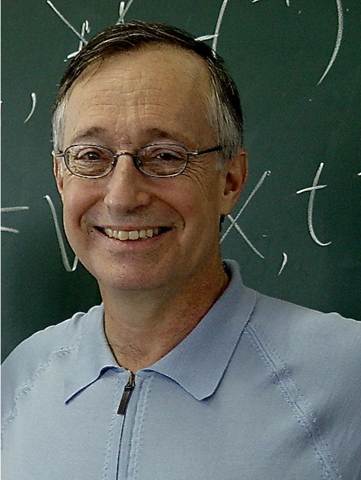Paul Milgrom
(1948 - )

Paul Milgrom was born in Detroit on April 20, 1948, the second of four sons to Jewish parents Abraham Isaac Milgrom and Anne Lillian Finkelstein. His family moved to Oak Park, Michigan, and Milgrom attended the Dewey School and then Oak Park High School.
Milgrom graduated from the University of Michigan in 1970 with an AB in mathematics. He worked as an actuary for several years in San Francisco at the Metropolitan Insurance Company and then at the Nelson and Warren consultancy in Columbus, Ohio. Milgrom became a Fellow of the Society of Actuaries in 1974.
Milgrom earned an MS in statistics at Stanford in 1978 and stayed to complete a PhD in business in 1979. His dissertation on the theory of auctions. This also led to the first of seminal articles on auction theory. His thesis advisor, Robert Wilson, would later become his collaborator in designing the spectrum auction used by the Federal Communications Commission.
Milgrom assumed a teaching position at the Kellogg School of Management at Northwestern University where he served from 1979 to 1983. Milgrom was part of a group of professors including future Nobel laureate Roger Myerson, Bengt Holmstrom, Nancy Stokey, Robert J. Weber, John Roberts and Mark Satterthwaite that helped to bring game theory and information economics to bear on a wide range of problems in economics such as pricing, auctions, financial markets, and industrial organization. Milgrom was influential in developing a deeper appreciation of how the mathematics of probability can be applied to economic theory.
From 1982 to 1987, Milgrom was a professor of economics and management at Yale University. In 1987, Milgrom returned as an economics professor to his alma mater, Stanford University, where he is currently the Shirley and Leonard Ely Professor of Humanities and Sciences in the Department of Economics.
Along with Wilson, “he introduced the initial design for sales of radio spectrum licenses in the United States. He has designed new auctions for Internet advertising and for procuring complex services. Research on incentives and complexity are combined to create auctions that are simple and straightforward for bidders, yet which dramatically improve resource allocation compared to traditional auction designs.”
According to his Stanford biography, “Milgrom has advised Microsoft Networks on sponsored search auctions, Google on its IPO auction of shares, Yahoo! on the design of an advertising marketplace, the Oregon Public Utilities Commission on sales of generating assets, Mexico on privatization auctions of state-owned assets, and various spectrum regulators in the U.S., UK, Canada, Australia, Germany, and Mexico on sales of radio spectrum.”
Milgrom was awarded the 2020 Nobel Prize in economics with his mentor Robert Wilson “for improvements to auction theory and inventions of new auction formats.”
According to the Royal Swedish Academy of Sciences, “Milgrom formulated a general theory of auctions that not only allows common values, but also private values that vary from bidder to bidder. He analyzed the bidding strategies in a number of well-known auction formats, demonstrating that a format will give the seller higher expected revenue when bidders learn more about each other’s estimated values during bidding.” Together with Wilson, they “invented new formats for auctioning off many interrelated objects simultaneously, on behalf of a seller motivated by broad societal benefit rather than maximal revenue.” These innovations “have benefitted sellers, buyers, and taxpayers around the world.”
He has written two books, Economics, Organization and Management (coauthored with John Roberts - 1992) and Putting Auction Theory to Work (2004).
In addition to the Nobel Prize, his other honors include:
- John J. Carty Award for the Advancement of Science, National Academy of Sciences, 2018
- Nemmers Prize in Economics, Northwestern University, 2008
- Fellow, National Academy of Sciences, 2006
- Fellow, American Academy of Arts and Sciences, 1992
- Fellow, Econometric Society, 1984
- BBVA Foundation Fronters of Knowledge Prize, 2013
Sources: Marcy Oster, “Jewish American Paul Milgrom shares Nobel Prize in economics for auction theory discoveries,” JTA, (October 12, 2020);
“Paul Milgrom,” Wikipedia;
“Paul R. Milgrom,” Stanford Graduate School of Business;
“The Prize in Economic Sciences 2020,” The Nobel Prize, (October 12, 2020)
Photo: Public Domain.


